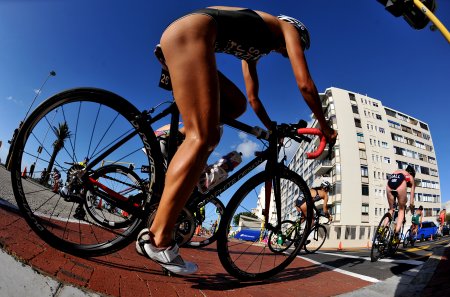Please click here to login into Discovery Digital Id
Maximising your potential: Triathlon cross-training

According to triathlete and biokineticist Ceejae Miller, who is currently training for her first Ironman 70.3, there are many benefits to training for a triathlon, and one of the most important is cross-training.
Says Miller, “with multisport training, especially triathlons, the athlete works different areas of the body in the different disciplines.” She says that this means that for example, where cycling works mainly the quadriceps, and running the hamstrings, swimming works the upper body. This means that the athlete can train hard almost every day with less risk of injury. “Although the athlete may have run a hard 10km on the Saturday, they can still cycle a tough 50km on the Sunday, as cycling requires a different demand on the body.” Importantly though, this form of training that focuses on endurance as well as sprint, trains the cardiovascular system as well.
Cross training gives the body a chance to actively recover and as a result, says Miller, there’s a decreased chance of overtraining when training for a triathlon. “Active rest,” says Miller, “is when the muscles are not the main muscles in demand, but are still being activated at a lower intensity so still allows for recovery.”
However, starting a new training programme when you decide to compete in a triathlon is tough and it’s a good idea to start slowly, says Miller. The risk of injury when starting a new sport is always increased; if you’re new at swimming you have a chance of shoulder and neck pain, hamstring and back pain can worry you if you’re new to cycling, and knee pain and shin splints can affect a new runner, says Miller.
The cross training aspect of training for three disciplines at once, says Miller, is what makes triathlon so special. It means you can push yourself every day within reason, and still reduce your risk of overtraining and injury. It also gives you a great cardiovascular workout so that you can effectively train continuously and get stronger and healthier continuously.
“Something I’ve learned from my own training experience,” says Miller, “is that training does not get easier; you get faster. Do not measure your level of fatigue as fitness because you will always push yourself until you are that tired. However, the speed at which you have covered that distance will improve and you will get faster.”
You can reach your maximum potential and having a goal to work towards can make it easier to achieve. Enter the Discovery World Triathlon Cape Town here: http://capetown.triathlon.org/enter.
To find out more about Discovery, click here.
